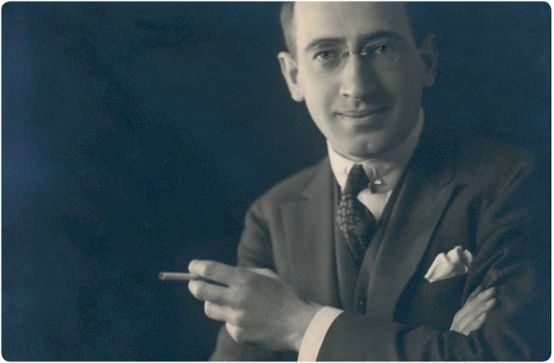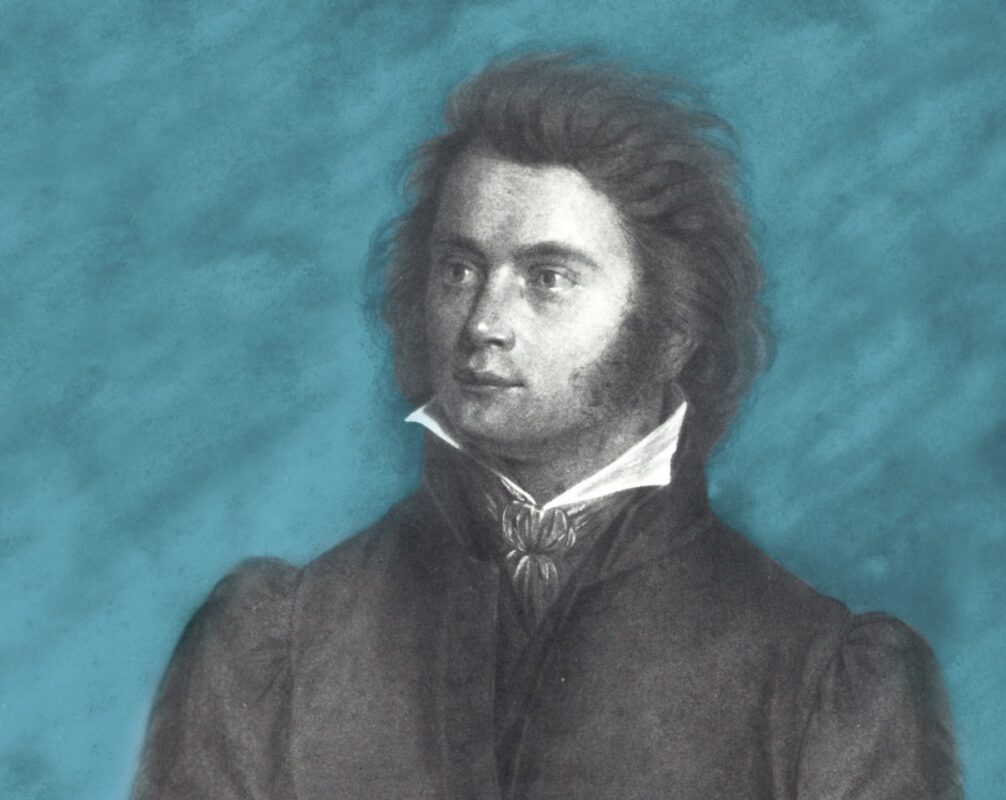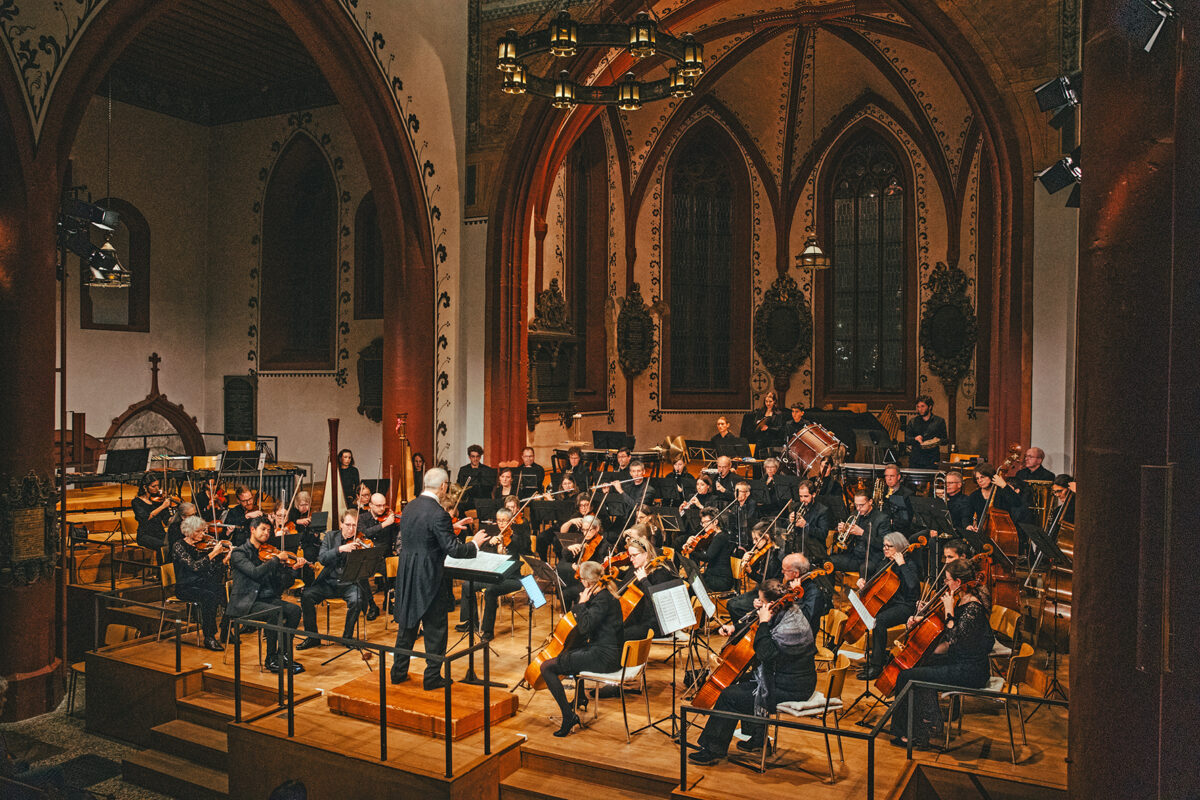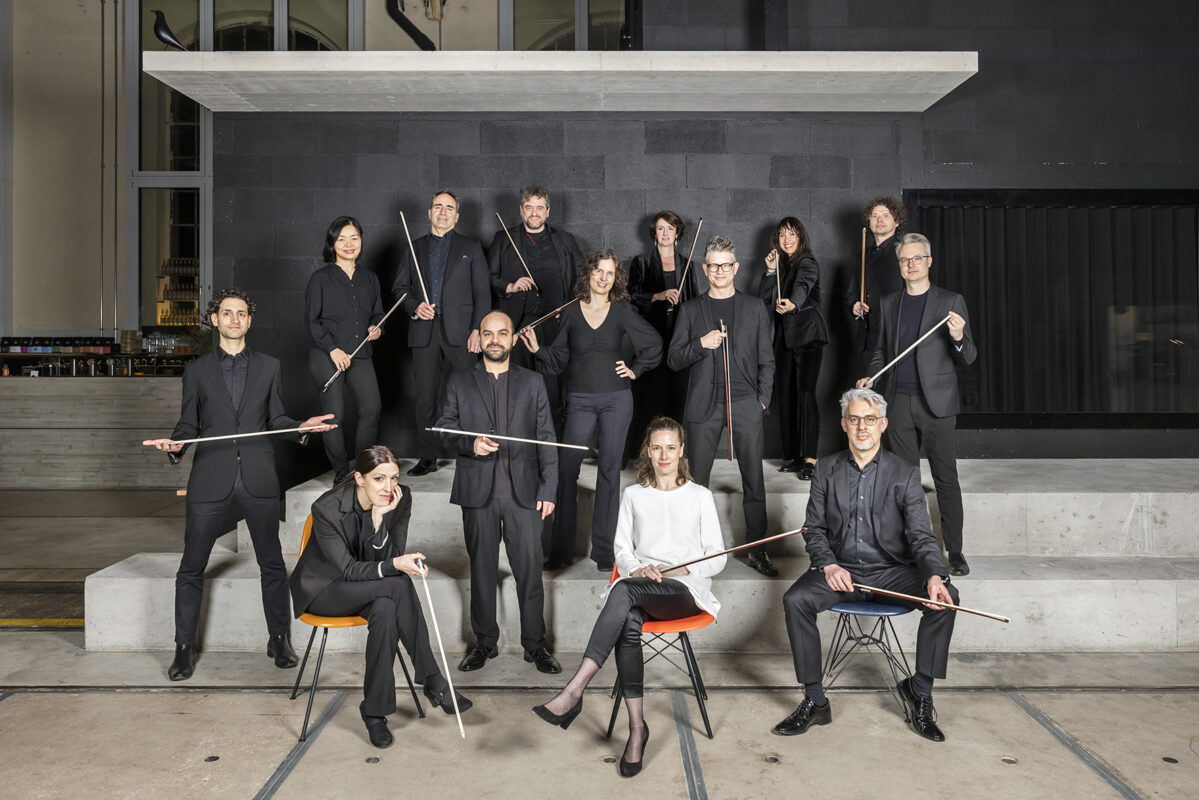The discovery of beauty
From October 12 to November 2, Lourié's better-known works were joined by world premieres, Swiss premieres and a new composition by the Swiss composer Regina Irman.

The experimental Arthur Lourié (1891-1966) left behind a diverse oeuvre, two operas, ballet music, two symphonies, chamber music, numerous piano works, vocal-instrumental works and songs, including much that is still unknown. Parts of his estate, music and text manuscripts, drafts and fair copies, are kept at the Paul Sacher Foundation in Basel. The Arthur Lourié Society is dedicated to rediscovering this fascinating composer.
Arthur Lourié died fifty years ago on October 12, 1966 in Princeton, New Jersey. His work is like a box of wonders, explains Stefan Hulliger, artistic director of the festival and president of the Arthur Lourié Society, who has been working intensively with it for ten years. Everything that is brought out is surprising and wonderful and simply begs to be played. The musicians themselves are often amazed by the effect of the compositions when they are brought to life on stage.
Melodicism combined with dissonance, unconventional instrumentation, the use of musical quotations, the combination of vocal and instrumental music with sounds and noises or speaking voices, the oscillation between experimental approaches and musical tradition offer a surprising and emotionally moving sound experience.
A world believed lost
The composer was almost forgotten. He was caught between two stools, a border crosser at a time when the borders between East and West were insurmountable due to the Iron Curtain. Born in 1892 in the Russian Empire of Jewish origin, he grew up in Odessa and studied piano and composition at the St. Petersburg Conservatory. He converted to the Catholic faith in 1913. He was a friend of Anna Akhmatova, part of a cohort of highly talented young people who created an atmosphere of uncompromising artistic search, sensitivity and openness in pre-revolutionary St. Petersburg and turned it into a laboratory of modernism. The young composer was just as fascinated by the Italian Renaissance as he was by Russian archaic music and the ideas of Russian Futurism. A friend of Khlebnikov, Mayakovsky, Tatlin and the Burlyuk brothers, he transferred their radical approach to the word and their sound poetry to music. He strove for a synthesis of the arts and experimented with micro-intervals, brought everyday and natural sounds to life in performance-like performances with prepared instruments and created an extremely individualized graphic notation.
Like most radical young artists of his generation, he welcomed the October Revolution in 1917 and was appointed head of the music department at the Ministry of National Education. His euphoria quickly faded when he realized that he could not support the expectations of propaganda and agitation in music.
In 1922, he fled to Paris via Berlin, took on duties as secretary to Igor Stravinsky and composed two symphonies, the Concerto Spirituale for choir, piano and orchestra as well as numerous instrumental and vocal works with echoes of Latin-influenced spiritual culture. In 1940, he was forced to flee Paris before the German occupation and made his way to the USA, where he lived in New York and on the West Coast and became increasingly lonely. Persona non grata in the Soviet Union at the time, separated from his European past, he was moved by St. Petersburg as a cultural phenomenon. He worked for a long time on his opera The Moor of Peter the Greatin which the history of St. Petersburg comes to life. Like Vladimir Nabokov, who elevated his longing for St. Petersburg to the status of world literature, like Anna Akhmatova, who in the Poem without a hero returned to the year 1913 and created a work of art of world renown, Lourié also sought access to a world believed to be lost.
Familiar and captivating solitaires
Three concert evenings as part of the 10th International Lourié Music Days in Basel offered the opportunity to discover the work of the St. Petersburg composer. On October 12, two different pianists, the Bulgarian Borislava Taneva and Moritz Ernst, this year's Festival Artist, who received his training in Basel and is one of the most versatile masters in his field, performed at the memorial concert on the 50th anniversary of his death. To mark the anniversary year, he presented the complete piano works of Arthur Lourié as a world premiere recording on three CDs.
"What to do with this melancholy!" This is how Stefan Hulliger led the November 1 Concerto da Camera for solo violin and strings. Three violins, three violas, three cellos, a double bass and the solo violin evoke memories in six movements and ever-increasing soundscapes. It is considered to be the composer's most frequently performed piece and was framed by smaller chamber music pieces such as Divertissement (1929), a work for violins and violas in four movements with a musical theme of the October Revolution, Ech, Yablochkobegins, ends with Byzantine-inspired sacred sounds and is reminiscent of Alexander Blok's revolutionary poem The Twelve can be thought of.
The sound of the Pastorale de la Volgacomposed in 1916 at the dacha of the symbolist poet Fyodor Sologub in Kostroma, the hometown of Dyagilev and the Romanov dynasty. Opulent soundscapes in an "incredible instrumentation" with oboe, bassoon, two violas and violoncello. In between, Moritz Ernst played piano intermezzi, including Royal v detskoj (Wings in the Children's Room), eight scenes from a Russian childhood, which Lourié dedicated to his daughter Anna in 1917, the year of the revolution, as if he wanted to evoke the timelessness of growing up. Fairytale-like images from the world of children in the field of tension between avant-garde and tradition, a series of captivating and sparkling little solitaires, realized in a multifaceted way by Moritz Ernst.
Focus on Akhmatova
The third concert evening on November 2 in Basel's Gare du Nord also inspired with discoveries. It was entitled "The Birth of Beauty". Twelve singers, six sopranos and six mezzo-sopranos interpreted works inspired by the composer's relationship with the Russian poet Anna Akhmatova and her world of thought. Highlights included early settings of Akhmatova's poetry, such as the Lament of the beggar women for two voices with cor anglais accompaniment, and Golos Muzy (Voice of the Muse) for one speaking voice and female choir, as well as the madrigal Canzone de Dante from 1921, which had its world premiere in Basel. With twelve female voices and live electronics, the latest work is Masks (2016) by Swiss composer Regina Irman (*1957), which was written especially for this evening on behalf of the BS/BL Music Committee, is an exciting reference to the St. Petersburg avant-garde and the present day. Everyday noises, whispers, whispers and secret speech emerge from the polyphony, allowing traces of the totalitarianism to which Anna Akhmatova was exposed in her life in the Soviet Union to penetrate.
Lourié's fascination with the Italian Renaissance, refracted in Russian, was expressed in the eponymous play La Naissance de la beauté clearly. Six sopranos, clarinet, double bass, harpsichord and cymbals were used to create Botticelli's picture. The birth of Venus into sound. The Basel video artist Bettina Grossenbacher produced a video especially for this performance.
The Arthur Lourié Society is to be thanked not only for its commitment to bringing this hidden composer to the stage, but also for the knowledgeable introductions to his works. St. Petersburg culture, scattered to the four winds, is being rediscovered in Russia after the end of the Cold War. It has charged its protagonists with energy that is as powerful today as it was a hundred years ago. Arthur Lourié is an exciting and stimulating composer whose further discovery we can look forward to.








